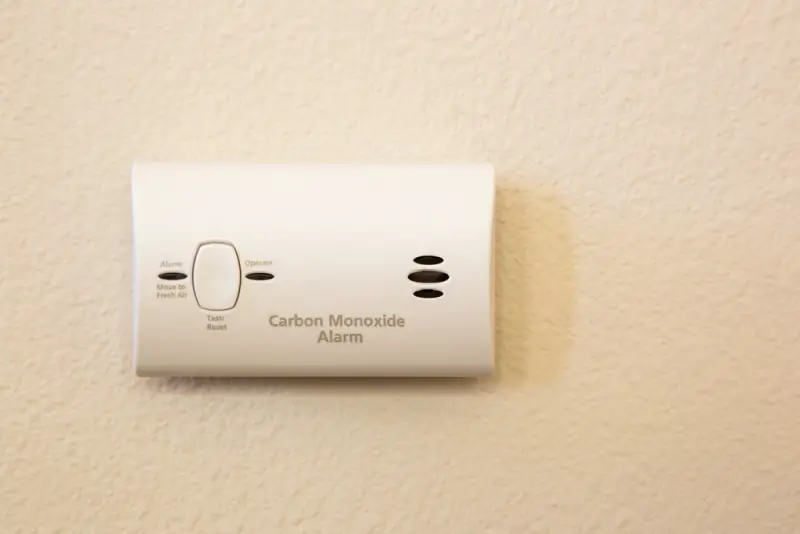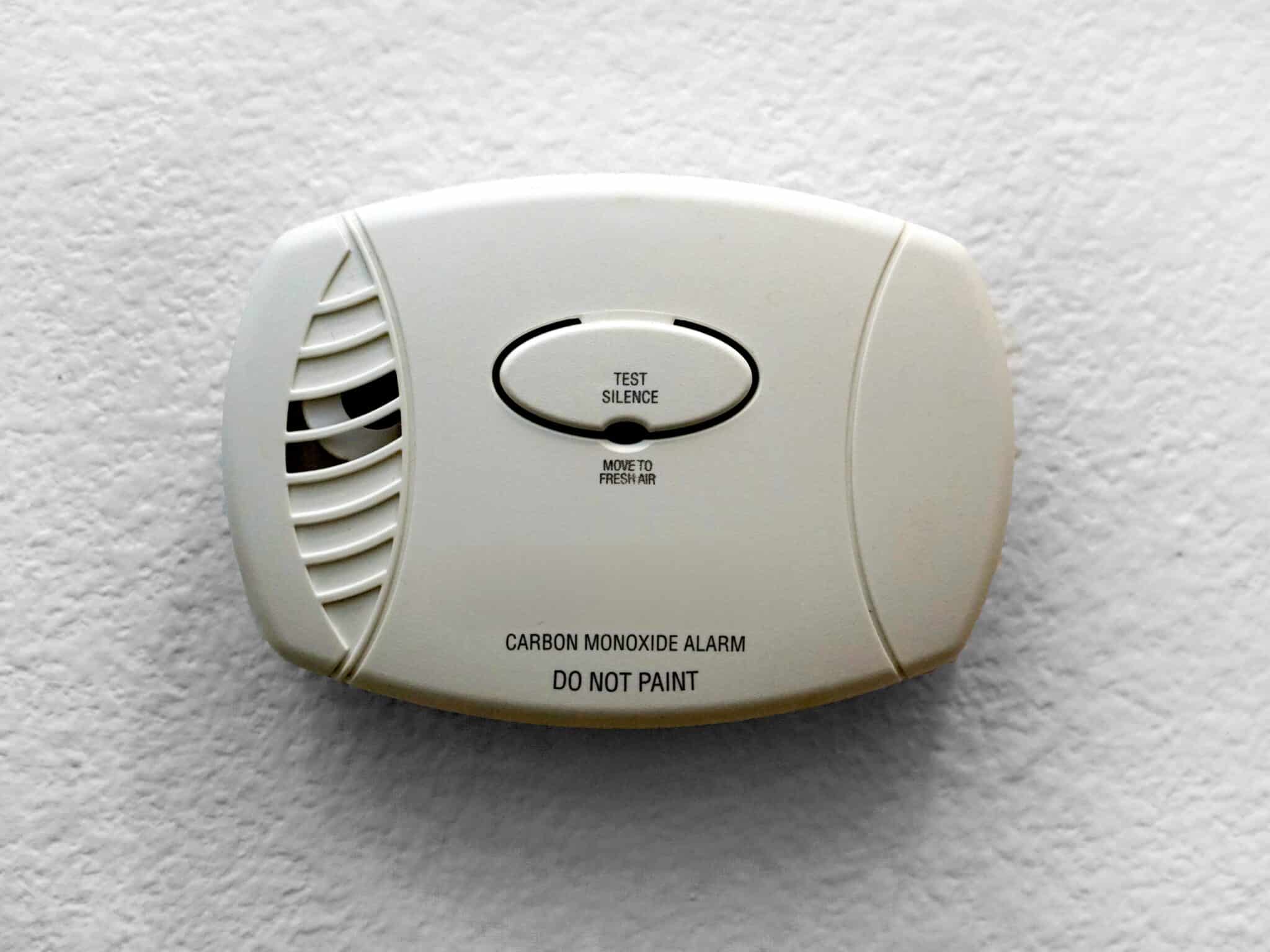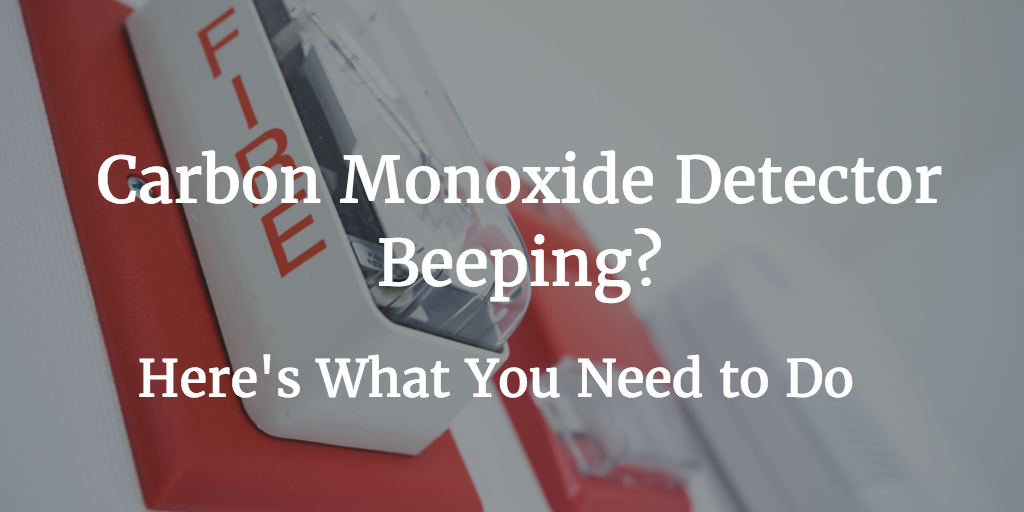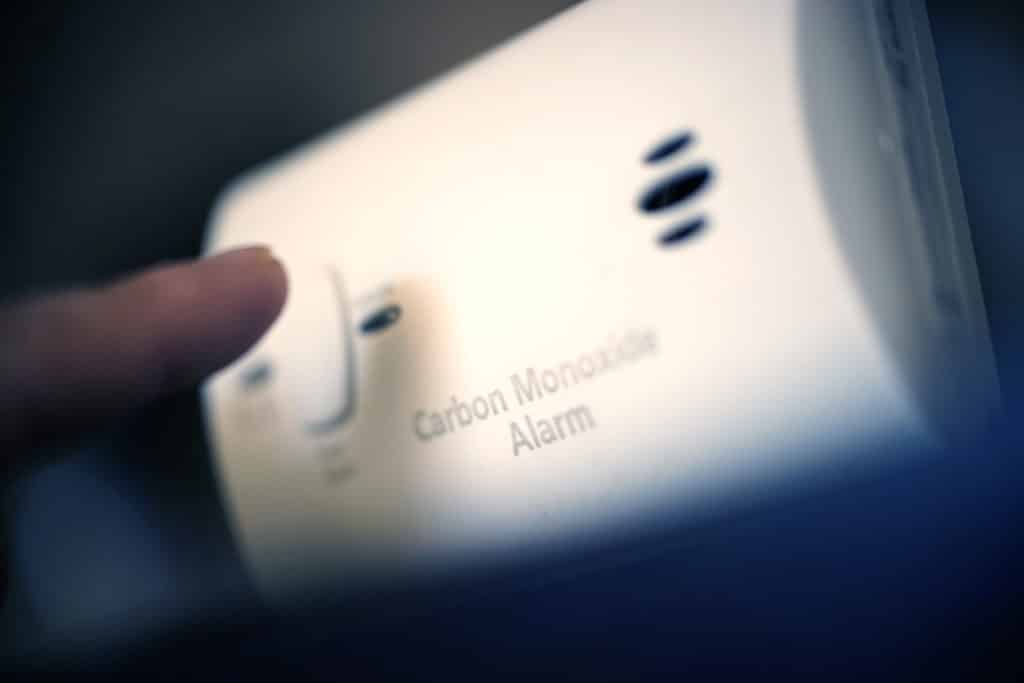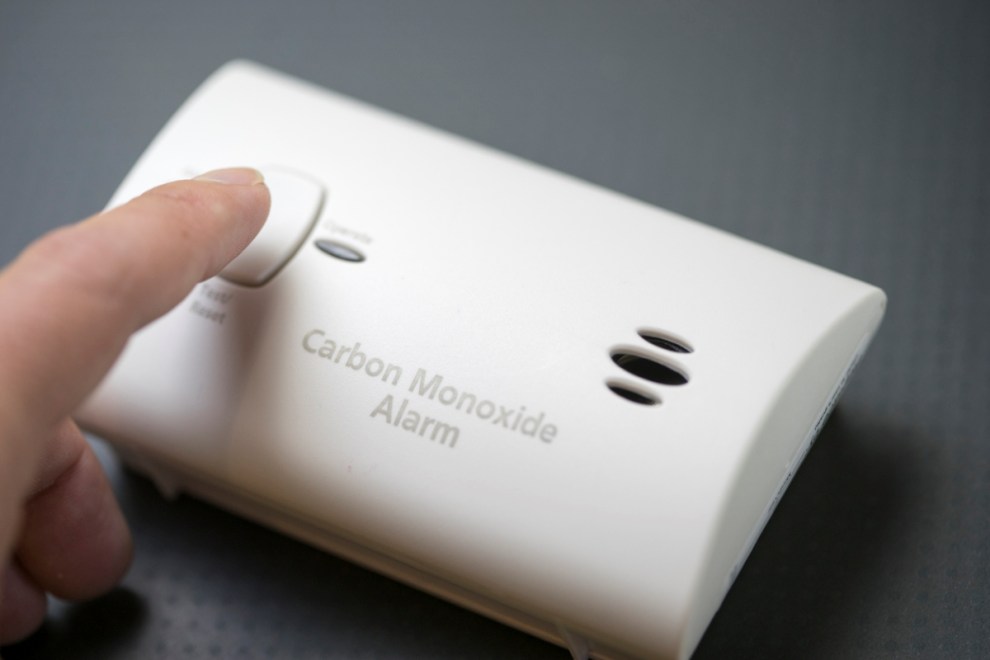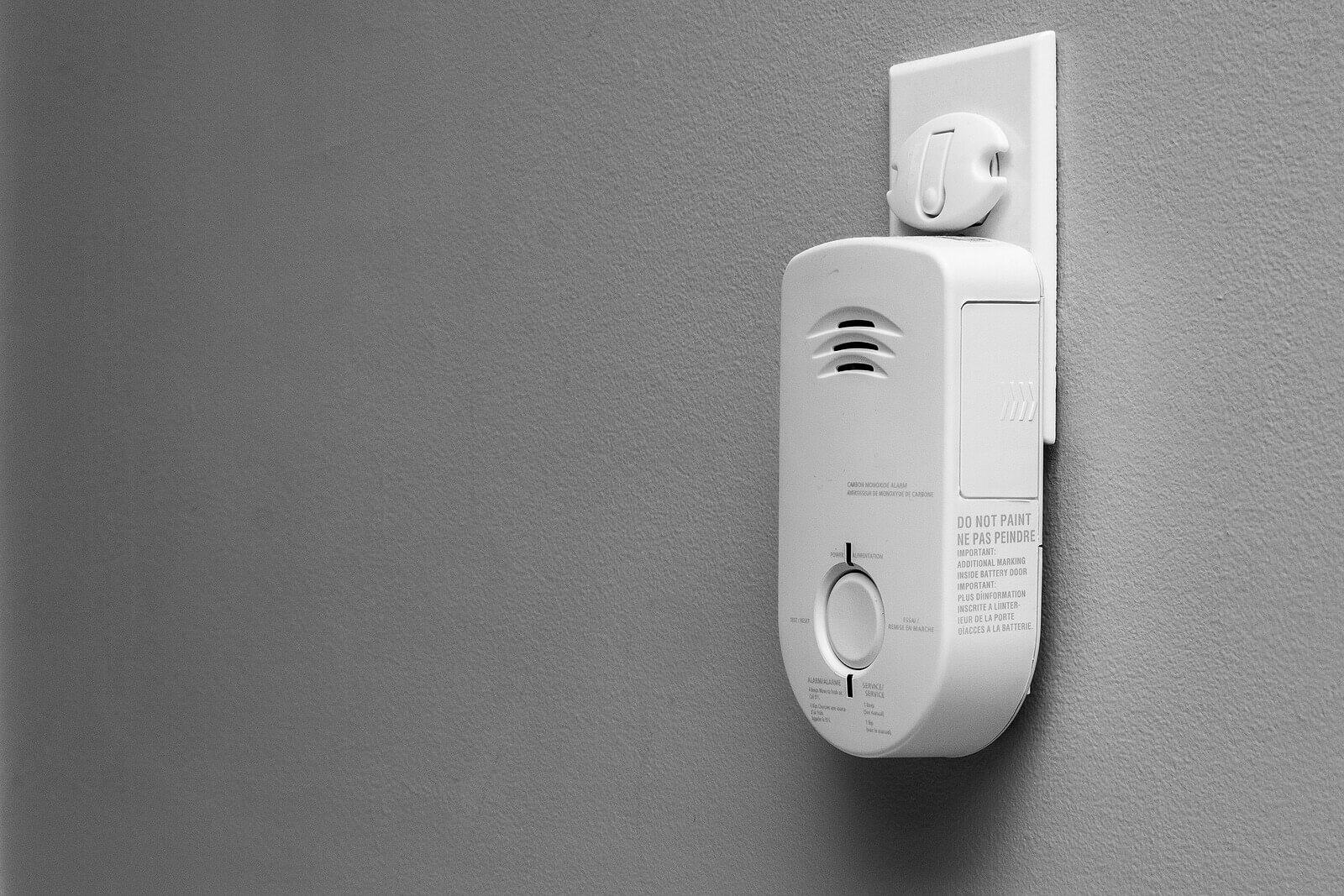Why Is My Carbon Monoxide Alarm Chirping

That incessant chirping sound. It's enough to drive anyone crazy! When your carbon monoxide (CO) alarm starts chirping, it's not just annoying – it's trying to tell you something important. But before you panic, let's figure out what it's trying to say and how to handle it.
Decoding the Chirp: Is It a CO Emergency?
First and foremost, distinguish between a chirp and a full-blown alarm. A chirp is usually a single, short sound repeated periodically (e.g., every minute or so). A full alarm is a loud, continuous blare signaling a high level of CO. If your alarm is blaring, evacuate immediately and call 911 or your local fire department. Do not re-enter the building until they give the all-clear.
A chirp, however, usually indicates a less urgent, but still important, issue.
Common Reasons for a Chirping CO Alarm
Here's a rundown of the most common culprits behind that annoying chirp:
1. Low Battery
This is the most frequent reason. CO alarms, like smoke detectors, often run on batteries. When the battery gets low, the alarm will chirp to let you know it needs replacement.
The Fix:
- Locate the battery compartment (usually on the back or side of the alarm).
- Replace the battery with a fresh one of the correct type (usually AA or 9V – check the alarm's label).
- Press the test button to ensure the new battery is working.
Even if the chirping stops after a battery replacement, it's a good idea to replace all batteries in your CO detectors at least once a year. A good reminder is to do this when you change your clocks for daylight savings time.
2. End of Life
CO alarms don't last forever. They have a limited lifespan, typically 5-10 years. After this time, the sensor becomes less reliable, and the alarm will start chirping to indicate it needs to be replaced, even with a new battery.
The Fix:
- Locate the manufacturing date on the alarm (usually on the back).
- Add 5-10 years to that date. If the current date is past that, it's time for a new alarm.
- Replace the entire CO alarm unit.
Many newer CO alarms have an "end-of-life" signal that is a specific chirp pattern. Check your alarm's user manual for details.
3. Dust and Debris
Dust, cobwebs, and other debris can interfere with the CO sensor, causing it to malfunction and chirp.
The Fix:
- Turn off the power to the alarm (if it's hardwired).
- Use a vacuum cleaner with a brush attachment to gently clean the exterior of the alarm.
- You can also use a can of compressed air to blow out any dust inside.
- Wipe the exterior with a damp cloth.
- Turn the power back on and test the alarm.
4. Sensor Malfunction
Sometimes, the CO sensor itself simply fails. This can happen due to age, exposure to extreme temperatures or humidity, or manufacturing defects.
The Fix:
Unfortunately, there's no fix for a failed CO sensor. If cleaning doesn't work, and the alarm is not at the end of its lifespan, you'll need to replace the entire unit.
5. Environmental Factors
Temporary fluctuations in humidity or temperature can sometimes trigger a chirp. Certain chemicals, like cleaning products or aerosols, may also interfere with the sensor. These are usually false alarms and will stop once the environment stabilizes.
The Fix:
- Ventilate the area to improve airflow.
- Avoid using strong chemicals near the alarm.
- Monitor the alarm. If the chirping persists, investigate other potential causes.
6. Wiring Issues (for Hardwired Alarms)
If you have a hardwired CO alarm, a loose connection or wiring problem can cause it to chirp. This is especially common after electrical work or renovations.
The Fix:
WARNING: Working with electrical wiring can be dangerous. If you are not comfortable working with electricity, call a qualified electrician.
- Turn off the circuit breaker that controls the alarm.
- Carefully inspect the wiring connections at the alarm and at the electrical box.
- Make sure all wires are securely connected and that there are no loose strands.
- If you find any damaged wiring, repair or replace it.
- Turn the circuit breaker back on and test the alarm.
When to Call a Professional
While many CO alarm issues can be resolved with simple DIY fixes, there are times when it's best to call a qualified HVAC technician or electrician:
- If you suspect a carbon monoxide leak, even if the alarm is not blaring. Symptoms of CO poisoning include headache, dizziness, nausea, and shortness of breath.
- If you're uncomfortable working with electrical wiring.
- If you've tried all the DIY fixes and the alarm continues to chirp.
- If you have a complex HVAC system and are unsure how it interacts with your CO alarm.
Preventing Carbon Monoxide Leaks
While fixing a chirping alarm is important, preventing CO leaks in the first place is even more crucial. Here are some preventative measures you can take:
- Have your fuel-burning appliances (furnace, water heater, fireplace, etc.) inspected and serviced annually by a qualified HVAC technician.
- Never use a generator indoors or in enclosed spaces.
- Ensure proper ventilation for all fuel-burning appliances.
- Never use a gas oven or stove to heat your home.
- Make sure your chimneys and vents are clear of obstructions.
Cost Estimates for CO Alarm Repairs and Replacements
Here's a rough idea of what you can expect to pay for CO alarm repairs and replacements:
- Battery replacement: $5 - $10 (DIY)
- New CO alarm unit: $20 - $100 (DIY)
- Hardwired CO alarm installation by an electrician: $75 - $200+ (depending on complexity)
- HVAC inspection of fuel-burning appliances: $75 - $150+
These are just estimates, and the actual cost will vary depending on your location, the type of alarm, and the contractor you hire.
Choosing the Right CO Alarm
When replacing your CO alarm, consider these factors:
- Type: Battery-powered, hardwired, or combination smoke/CO alarm.
- Features: Digital display, voice alerts, end-of-life warning.
- Certification: Look for alarms that are certified by a reputable testing laboratory, such as UL (Underwriters Laboratories).
- Placement: Install CO alarms on every level of your home and outside sleeping areas.
Conclusion
A chirping carbon monoxide alarm is a warning signal that should never be ignored. By understanding the common causes and taking appropriate action, you can ensure the safety of your home and family. Remember, when in doubt, always err on the side of caution and call a professional. Your health and safety are worth it.

